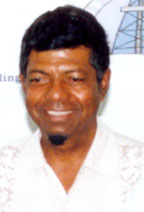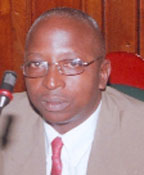There has been a reduction of violence in schools over the past year, according to Education Minister Shaik Baksh, who is accusing the media of sensationalising the issue.

In response to a question posed by GAP/ROAR MP Everall Franklin on what steps the Ministry of Education (MoE) has taken “to address the growing organised violence within the school system against students and teachers,” Baksh said that there was only one reported case over the past academic year. According to him, the question related to other forms of violence in the school system-a topic that he noted has been in the media for some time. “It is not to say that there are not gangs outside of system,” he added, while noting that the MoE has a strong reporting system in place.
Baksh explained that the MoE has been working to ensure that violence in the school system is minimised, if not eliminated. He added that over the past several months there has been a lot of sensational reporting on the issue. He said one section of the media “even fabricated a case in the West Berbice area,” and the MoE welfare officers subsequently determined it to be an accident.
Baksh stated that in relation to non-gang related violence in schools, there was a decline during the 2009/2010 school year, as compared to the previous year. He said only three months ago the MoE held an open forum to address good behaviour and acceptable values in schools. While he said some sections of the media undermined the event, he noted that it benefitted the MoE as many stakeholders helped in charting a way forward. Baksh explained that the MoE adopted a 10-point plan, which includes a mentoring programme in selected schools. Baksh said the mentoring component would be expanded because the MoE is “seeing results.” In addition, guidance and counselling officers have been introduced into the system using a more structured approach that has been showing results.
Baksh also noted that the school’s welfare department has been strengthened. Three years ago there were only 25 officers in the unit, while today some 60 officers carry out the unit’s mandate. The MoE also plans to advance legislation to introduce student councils, “giving them a voice to minimise violence in schools.”

Meanwhile, Franklin also asked Baksh whether he was aware that the current education curricula within secondary schools “cannot be fully accommodated/or completed within the school’s timetables,” forcing students to resort to extra lessons to complete the required syllabuses. Baksh said that there is a difference between curriculum and syllabus, with the former specifying content to be covered as defined by objectives and latter being broader in focus as it includes guidelines for teaching strategies, recommendations for teaching practices and suggested evaluation techniques, among others.
An assessment was carried out by the MoE and it has been determined that syllabuses are completed within schools timetables; some schools adjust theirs to ensure completion within the school year. Baksh said from time to time teacher shortages do occur and in such cases the MoE recruits part-time teaching staff for specialised areas, such as the science subjects. He noted, however, that schools have been adjusting to take care of these contingencies.
Franklin expressed appreciation for the explanation provided by Baksh on the difference between curriculum and syllabus, but he questioned whether the results and performance of students in secondary schools would be the same if there were no extra lessons. Baksh said that he could not determine the answer, adding that research will have to be done in that regard. He disclosed that the MoE has already engaged some researchers to assess and evaluate the impact of extra lessons on performance of students at the CSEC examinations.









